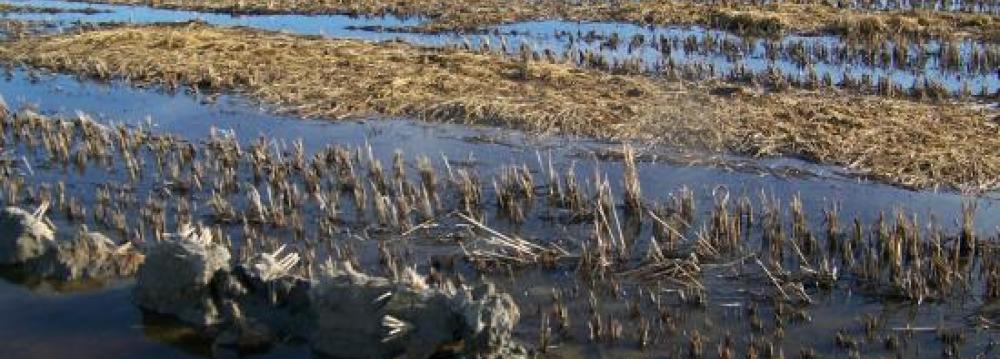Iran's reserves of groundwater are being depleted at an alarming rate because of poor management and excessive consumption in the agricultural sector, an environmental expert warned.
Official data suggest over 90% of the country's water resources are used up in the agriculture sector, where unsustainable and wasteful farming practices are common.
"It is imperative to adopt and seriously pursue measures in the farming sector to curb inefficient water use and carry through the previously introduced reforms," said Mohammad Mojabi, head of the Expediency Council's Environment Committee. Those measures could include limiting rice cultivation, upgrading irrigation systems and improving agricultural methods, he noted.
"Modern irrigation methods have been applied to two million hectares of farmland so far… Fortunately irrigation efficiency has grown substantially from 39% to 44% in recent years," Mojabi was quoted as saying by ISNA.
That rate, however, pales in comparison to the global average of 75%. The modern irrigation systems can help reduce water loss by allowing the farmers to control the flow of water.
Informed Guidelines
A well-thought-out crop- and region-specific set of instructions on cultivation practices has been drawn up by agricultural experts, Mojabi said.
"In order to encourage the farmers to follow those instructions, they need to be backed up by supportive policies to become economically viable."
Many of Iran's water bodies that rely on renewable resources are facing a critical situation largely due to what the official described as the change in precipitation patterns.
"Regrettably, the changing rainfall pattern has adversely affected rivers, the main source of surface water."
Mojabi had warned earlier that reserves of surface water have fallen to below 100 billion cubic meters. Located in one of the world's most water-stressed regions, Iran's average precipitation rate for at least the last 10 years has been lower than the global average.
The country's nearly two-decade-long struggle with drought, combined with high consumption and waste, has led to renewable water resources dropping to under 120 bcm. However, by some accounts, that figure is closer to 88 bcm. Experts predict that the country's water scarcity will hit crisis level by 2025, when available renewable water will be less than 1,000 cubic meters per capita, down from 2,000 cubic meters in 1950.


